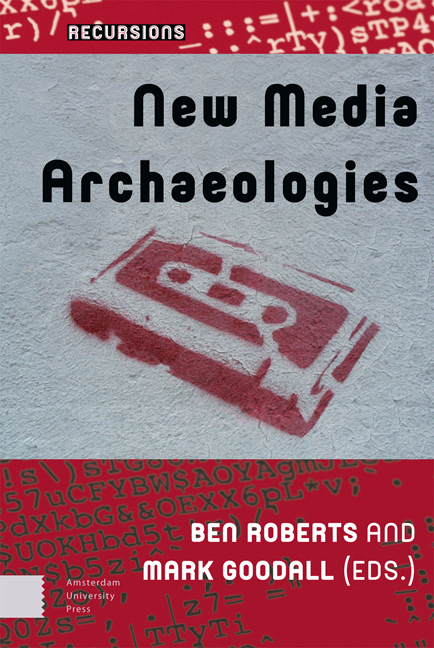8 - The Cube: A Cinema Archaeology
Published online by Cambridge University Press: 21 November 2020
Summary
Abstract
Archaeologists with interests in media technologies, artefacts, networks and landscapes are seeking to apply rigorous methods from conventional archaeological practice in order to legitimize archaeological interests in the media and to distinguish archaeological approaches from those of the ‘media archaeologists’. However, might there also be room for archaeologists to bring the more playful methods used in prehistoric archaeology into the media archaeology arena? In this chapter, we discuss a project undertaken at Cube Microplex, a volunteer-run arts and cinema space in Bristol, UK. In advance of major redevelopment work, we undertook an archaeology of the cinema as a collaboration between academics and the community of Cube volunteers. The aim was two-fold: to record a multi-scalar assemblage of the cinema's interior spaces and artefacts and to generate materials that could be re-assembled in future as part of an ongoing artwork to be enfolded in the cinema as part of its media heritage.
Keywords: Media Archaeology, Archaeology, Cinema, Communityinvolved practice, Mixed-mode research
The Cube is a volunteer-run mixed-arts-cinema space in the Stokes Croft area of Bristol, UK. Opening in 1998 in King's Square, at the site of the former Arts Cinema (the first of the British Film Institute's Regional Film Theatres), the Cube has generated and held a diverse range of events, people, and materials during its life. Since June 2015, the Cube has been involved in a collaborative contemporary archaeology project that has brought together volunteers and archaeologists to learn archaeological and heritage interpretation methods in order to investigate the human and other-than-human pasts, presents, and futures of this place. The project emerged in response to the Cube's purchase of its building and developing plans to reconfigure the interior spaces. The renovation is driven in part by regulatory pressures around health and safety, access issues, and a desire to open up the Cube more to its communities as a making and meeting space. However, the planned renovations have generated anxieties about loss: of character, of patina, of an undefined magic of place that generates the specific sense of community that Cube volunteers feel.
- Type
- Chapter
- Information
- New Media Archaeologies , pp. 177 - 204Publisher: Amsterdam University PressPrint publication year: 2019



